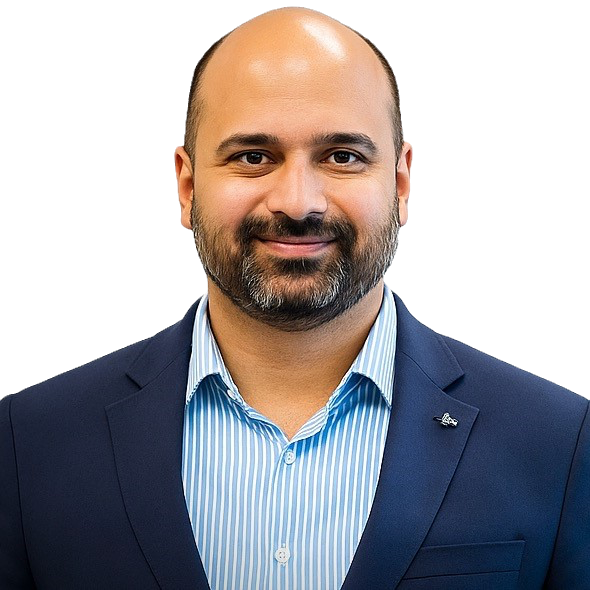Driving Global Innovation in Life Sciences: A Conversation with Dace Dimza-Jones
- Darren DaCosta
- Jun 19, 2025
- 4 min read
Updated: Aug 1, 2025

Dace Dimza-Jones works at the heart of international life sciences investment, connecting companies with opportunities across the UK and beyond. Her role spans countries, sectors and healthcare systems, always with an eye on impact. In this interview, she shares her views on innovation, equity and the power of small ideas to drive big change.
Tell us about your role
I focus on supporting R&D-intensive, IP-rich international life sciences companies that want to invest or expand in the UK. This involves helping them navigate the landscape of UK life sciences ecosystem, identify the right regional opportunities, and connect with partners who can support their growth.
Although I previously worked across all areas of the sector, my current focus is on high-impact health tech innovative companies. I work globally, supporting businesses from over 170 countries and regions. That includes large economies like the US and India, but also smaller nations such as Baltics and Nordics.
What surprises people most is that I spend very little time in an office. Most of my work is face to face, meeting with companies, visiting regions, and helping build meaningful collaborations. It is a very active and outward-facing role.
What makes you proud to work in healthcare?
There have been many, but what stands out most is seeing patients gain access to treatments or tools they never had before, especially in areas like paediatrics or rare diseases, which often don’t attract commercial interest. The impact can be life-changing, even if the innovation itself seems small. Those moments remind me why I do this work.
What surprises you about your work?
Honestly, it's how powerful small changes can be. You expect breakthroughs to come from massive innovations, but sometimes it’s the smallest tweak to a process that has the biggest impact such as when it makes healthcare more human and accessible. I’ve seen this in everything from redesigning care kits for midwives to grassroots inventions by patients themselves.
How would you improve healthcare?
If I could change one thing, it would be attitude on both sides. I’m quite strict about this because I see how burnout and disillusionment are affecting the system, especially within the NHS. Many staff feel uninspired or too exhausted to push for change. But healthcare is a place for people who care deeply and want to make a difference. If that spark is gone, it’s time to reassess.
I also believe that well-being needs to be taken more seriously. The NHS has resources, yes, but often it tries to solve problems internally, like appointing a staff member to lead well-being initiatives. Sometimes, the right approach is to bring in outside expertise, especially from organisations that have been focused on this for years.
What’s a common myth or misunderstanding about digital and data in healthcare?
A big one is that digital tools will replace humans. I don’t see that happening. In fact, I believe digital will create more work for humans in many ways. For instance, earlier diagnoses - especially for oncology or neurodegenerative diseases - will demand more human support and care, not less.
Plus, my work spans social care too, not just healthcare. And in that space, human connection is vital. Digital can enhance care, but it can’t replicate the empathy, judgment, or intuition that people bring.
Which innovation in health or care are you most excited about, and why?
AI is the obvious one.
It can revolutionise how we treat patients, but there’s a risk that we stop trusting our own clinical instincts. I think of experienced doctors who can assess a patient just by how they walk into the room: that kind of intuition is irreplaceable.
That said, I’m equally inspired by small-scale, local innovations. For example, I saw a cardboard kit developed for community midwives. It’s simple but designed to help manage postpartum haemorrhage, especially in low-resource settings. It’s sustainable, repackable, and potentially lifesaving.
And one of my favourite examples comes from a clinical trial in India where blind women were trained to detect breast cancer through touch. No tech, just a powerful use of human ability and dignity. It’s inspiring because it’s inclusive, respectful, and deeply effective.
I also admire innovations that come from patients. I remember meeting a woman on the NHS Clinical Entrepreneur Programme who developed a product based on her own health journey. That kind of patient-led insight is something we should value much more.
One book, podcast, or person you’d recommend to others?
There are so many, but a few that stand out are Midnight’s Children by Salman Rushdie and All Quiet on the Western Front—the latter really moved me.
Another one I return to is Man’s Search for Meaning by Viktor Frankl. It’s a tough but important read. I’ve also been reading stories from authors in the countries I work with—if I’m meeting a company from Poland, for example, I’ll read a Polish writer. It helps me understand not just their product, but their mindset.
Books help me stay grounded and broaden my perspective, which is essential when working in such a human-centred field.
Finally, in three words, what should the future of healthcare feel like?
Accessible. Inclusive. Fair.
We need to work toward a future where care is not just available, but equitable—where people feel truly seen and supported, no matter where they come from or what their background is.



